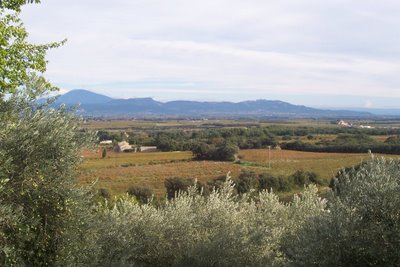Writing in standardized language -- terms that we can all agree on -- is important for effective communication, as well as to avoid looking like an idiot. Over time, standards are defined that enable us to communicate in a consistent fashion. For example, we'd all agree that "playhouse" is a noun while "play house" is a verb. Some standards in our language seem eminently sensible, while others are absurd to the point of becoming one-liners, such as "
Why isn't phonetic spelled like it sounds?"
The Internet (internet?) has introduced a boatload of new terms into our language, many of which still aren't standardized. Since we've been online (
not "on line" or "on-line") for over a decade now, I thought I might be able to discover and share some proper web writing standards. But it turns out there is still considerable disagreement over the correct way to capitalize and abbreviate several common terms, so the following is merely my contribution to the ongoing debate.
Should "Internet" be capitalized?Research indicates that
Wired News is losing its battle to make "internet" lowercase. Most sources favor "Internet." For example, as pointed out
here, Ziff-Davis produces a number of technology-oriented publications and
never uses "internet." The
Tech Liberation blog agrees. So does
EDUCAUSE,
Webopedia,
Western Michigan University, and numerous other sources. The basic logic is: there is only one Internet, which makes the word a proper noun, which means it should be capitalized. Settled?
Should "web" be capitalized?One might think that the same logic for "Internet" applies to "Web;" there is only one, so it's a proper noun, so it should be capitalized, right? Indeed, there is
some support for that argument, including sources like the
Mac Web Style Guide and, again,
EDUCAUSE. But in this instance, lowercase seems to win out. According to
Gadgetotpia, "the first letter of the word ‘Web’ is to be capitalized ONLY when reference is made to the World Wide Web. Webs on private networks are to be referred to as ‘webs,’ with a lowercase ‘w.’”
Emmanuel College agrees, stating "
Web should be capitalized when referring to the World Wide Web, but lower case when used as an adjective."
Other sources merely reflect widespread confusion. The best argument I've heard for non-capitalization of "web" is that the web is a medium for distributing information; we don't capitalize "mail," "phone," or "fax," so we shouldn't capitalize "web."
That said, at this point, you can still get away with either.
__________________________________________________________
This post sponsored by
Marketing Tools from VerticalResponseCreate professional HTML Email and printed Postcard campaigns in minutes right from your browser. No technical expertise needed - Choose from over 250 templates. It's easy, affordable and powerful. Try it Free Today!
__________________________________________________________
Is it "web site" or "website"?Definitely "website." I think. Since neither the
AP Stylebook nor the
Chicago Manual of Style are really clear on this point, I consulted the ultimate authority: Google. "Web site"
produces only 1.5 billion hits, while "website"
results in 2.2 billion. Still, that's not an overwhelming difference, so if you are really stuck on "web site" (or even "Web site") as two words, you're in agreement with a significant minority.
Is it "B2B" or "b2b"?Although there is
some support for writing the abbreviation for "business-to-business" in lowercase, an informal survey of usage indicates that B2B is far more common.
Presumably, there will come a time when the proper form of these terms will become standardized. Probably about the time when the next technology revolution makes the words and phrases above seem as obsolete as "buggy whip" (which is
definitely two words).
*****
Terms: Internet, internet, Web site, web site, website, b2b, B2B, online, on-line, on line, Internet writing style, proper use of web terms
The Internet marketing online portal:
WebMarketCentral.comContact Tom Pick: tomATwebmarketcentral.com












